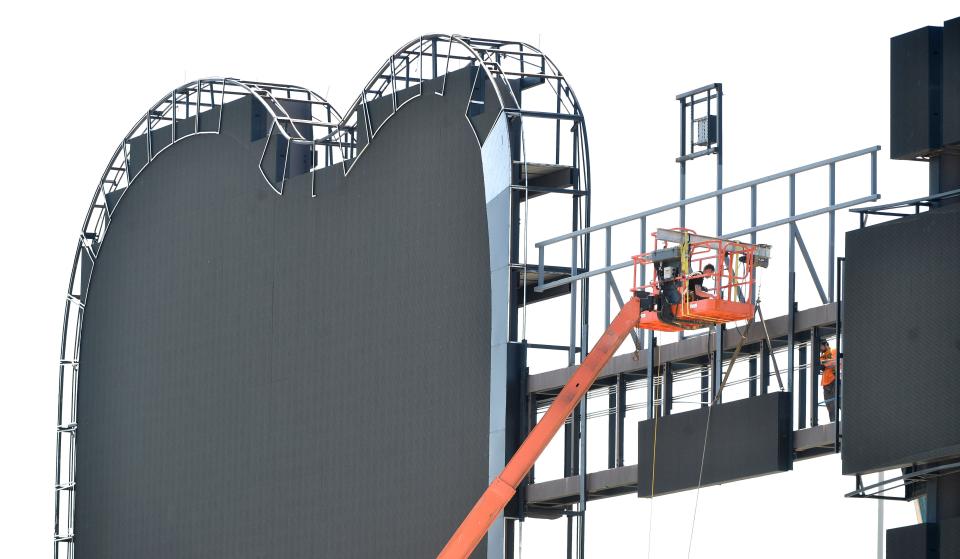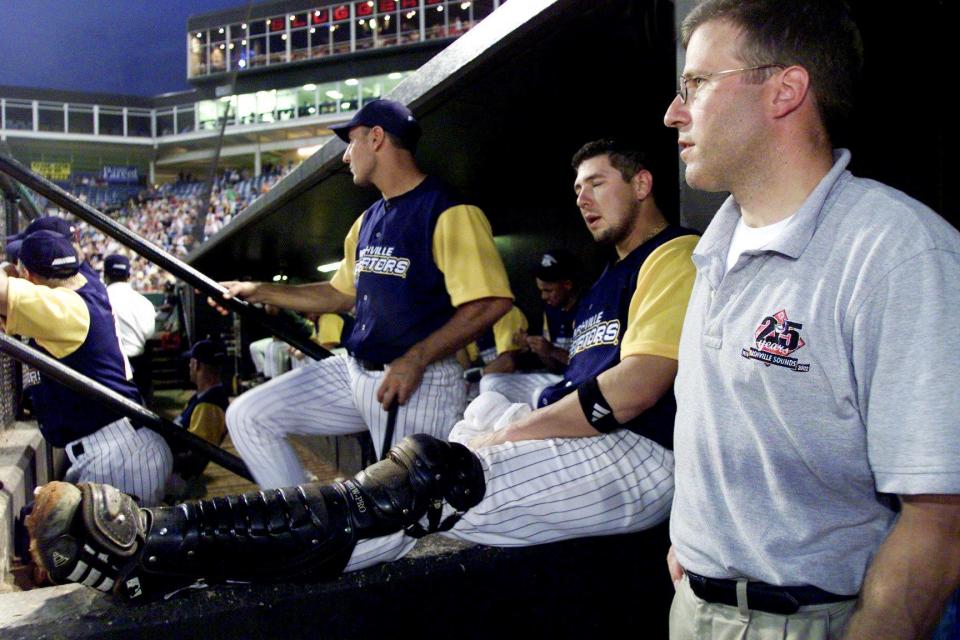Why Nashville Sounds players could improve their livelihoods with a union | Opinion
With 91 wins and nearly unmatched attendance, the Nashville Sounds just finished yet another successful season. But in 2020, the Sounds could have vanished overnight.
Two years ago, Major League Baseball unilaterally eliminated 40 Minor League Baseball teams, and in February they tried to get the power to cut even more. Teams were powerless to stop them, but they aren’t any more.
In September, for the first time in baseball history Minor League Baseball players voted to unionize and join the Major League Baseball Players Association (MLBPA) — the union representing Major League Baseball players. Sounds fans should celebrate because a union representing minor leaguers will improve working conditions, protect our beloved teams and make the sport more competitive on the field.
For more than a year, I researched the working and living conditions in Minor League Baseball. I spoke with players, coaches, executives and agents about the grind.
While select top prospects earn multi-million dollar signing bonuses — most players — one Double A pitcher said, “sign for a plane ticket and a happy meal.” The stats back this up.
Hear more Tennessee Voices: Get the weekly opinion newsletter for insightful and thought provoking columns.
In 2021, the poverty line for a one-person household in the U.S. was $12,880. According to Advocates for Minor Leaguers, the median minor leaguer earns only $12,000 per year.

In other words, more than half of minor leaguers earn below poverty-level wages. For comparison, G League basketball players and minor league hockey players earn minimum salaries of $37,000 and $52,000, respectively, and both are unionized.
The low salary makes living conditions even rougher. Sounds players and other minor leaguers you see on the First Horizon Park guitar scoreboard are not paid during the months-long offseason even though they are contractually required to train.
Most have to take a second job during the offseason just to get by. With so little money, many have to choose between eating healthy or eating enough — leading one high A outfielder to feel guilty for buying a burrito from Chipotle.
We love our players, but they aren’t paid fairly. As one former Triple A infielder said, when you sign a contract, “you sign away your life.”
Sign up for Black Tennessee Voices newsletter: Read compelling columns by Black writers from across Tennessee.
Minor League unionization can change baseball

Minor league unionization will revolutionize baseball for three reasons. First, a union means Sounds players and other minor leaguers will finally be able to collectively bargain to improve their working conditions. The founding of the MLBPA in 1966 showed the transformative power of collective bargaining.
After 50 years of failed labor struggles, the MLBPA brought immediate, sweeping change: sports’ first Collective Bargaining Agreement, free agency, salaries, the first league-wide player strike and more all in the first 8 years. The MLBPA can do this again for minor leaguers’ salaries, nutrition and living situations.
Second, a union will help fans by protecting the Sounds and other beloved minor league teams. No one could stop the MLB in 2020 when it cut 40 teams and threw nearly 1,000 players off the field.
Lifelong, diehard fans in small towns around America lost their favorite teams overnight — in February, the MLB sought the power to do this again. No union meant minor leaguers couldn’t resist in 2020, but they will be protected going forward.

Your state. Your stories. Support more reporting like this.
A subscription gives you unlimited access to stories across Tennessee that make a difference in your life and the lives of those around you. Click here to become a subscriber.
Finally, better conditions will mean a better game on the field. As one Double A pitcher put it, “If you want your athletes to perform to the best of their capabilities, you can’t be serving them Panda Express every night.”
So next season as you unwind and cheer on the Sounds and the fifth inning Country Legends race, remember how much each player had to struggle to be there. The Sounds are Nashville’s oldest professional sports team, and Minor League Baseball in the city has a proud history as far back as 1884.
A union will help its players and make sure it carries into the future.
Matt Thomas is a high school math teacher with a bachelor’s degree and master’s in Education from Harvard University. He was captain of the Harvard Baseball team and wrote his prize-winning senior thesis on the prospects of Minor League Baseball unionization.
This article originally appeared on Nashville Tennessean: Nashville Sounds: Why a union will help Minor League players

